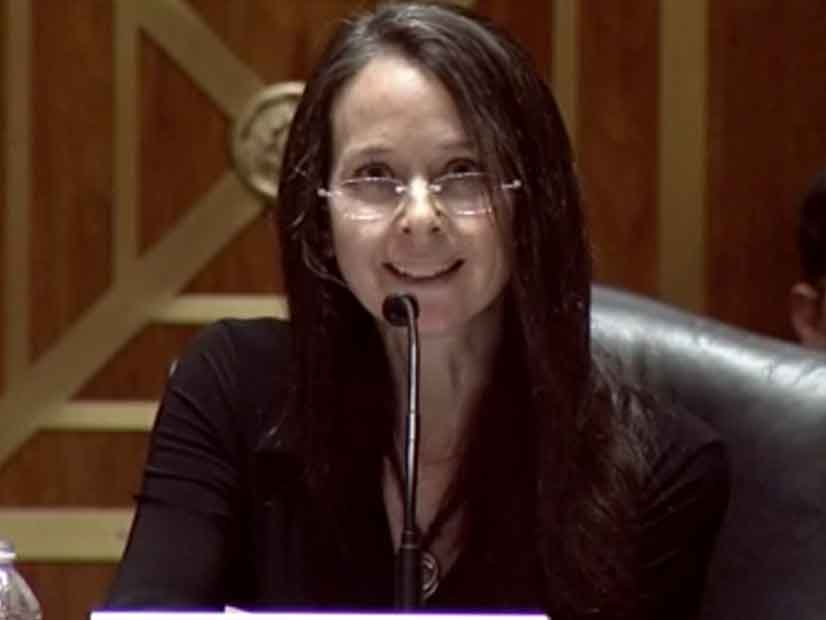The Senate unanimously confirmed former Morgan Stanley executive Jen Easterly as director of the Cybersecurity and Infrastructure Security Agency (CISA) Monday.
Easterly will replace acting director Brandon Wales, who took over at CISA last November when President Donald Trump fired founding director Chris Krebs for refusing to back unfounded claims of election fraud.
Easterly, formerly head of firm resilience and the Fusion Resilience Center for Morgan Stanley, served as the cyber policy lead for President Biden’s transition team. She also served as the deputy for counterterrorism at the National Security Agency and as the senior director for counterterrorism on the White House National Security Council under former President Obama, and as the executive assistant to National Security Advisor Condoleezza Rice in the George W. Bush administration.
“I am incredibly honored and humbled to join the team at CISA,” she said in a statement after the vote. “I have admired the agency from afar as the organization has grown over the past several years, and seen firsthand how its guidance, insight and resources can benefit public and private sector partners as part of our collective defense to build a more resilient nation.
She promised “to continue evolving the strategy, workforce and culture of CISA to be the world’s premier cyber and infrastructure defense agency and achieve our vision of secure and resilient infrastructure for the American people.”
Easterly’s nomination was brought to a vote after Sen. Rick Scott (R-Fla.) lifted a hold he had placed until either Biden or Vice President Harris visited the U.S.-Mexico border. Harris visited the border in late June.
Easterly is a graduate of the United States Military Academy at West Point, and holds a master’s degree in philosophy, politics and economics from the University of Oxford, where she studied as a Rhodes Scholar. She retired from the U.S. Army after more than 20 years in intelligence and cyber operations, including stints in Haiti, the Balkans, Iraq and Afghanistan. Her biography credits her with “standing up the Army’s first cyber battalion” and participating in the design and creation of United States Cyber Command.
“If the past year has taught us anything, it is the obligation we have as leaders to anticipate the unimaginable,” Easterly said during her confirmation hearing before the Senate Homeland Security and Governmental Affairs Committee in June.
She described CISA, formed in 2018, as a “quarterback … leading asset response for cyber incidents” under the direction of the National Cyber Director Chris Inglis, the “coach … overseeing the implementation of cyber strategy and policy.” Inglis was confirmed last month. (See Inglis, Easterly Define Roles in Confirmation Hearing.)
Secretary of Homeland Security Alejandro N. Mayorkas congratulated Easterly in a statement, praising her as a “brilliant cybersecurity expert and a proven leader with a career spanning military service, civil service and the private sector.”
Mayorkas also thanked Wales for serving as acting director. “Brandon’s steadfast, superb leadership has been invaluable, especially as CISA continues to respond to rising cybersecurity incidents impacting businesses, government, communities and critical infrastructure across our nation,” he said.
Edison Electric Institute President Tom Kuhn said Easterly’s cyber and national security experience “make her eminently qualified to serve in this role.
“Protecting America’s critical energy infrastructure from cyber and physical threats is a shared responsibility between the electric power industry and our government partners. We look forward to working with Director Easterly and the CISA team, and with leaders from across the Biden administration, as we all prioritize the industry-government coordination and information sharing that are so important to ensuring that we continue to enhance the resilience and security of the North American energy grid.”




